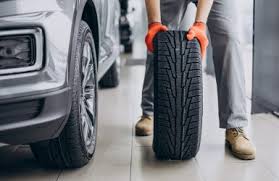Introduction
Tyres are a critical yet often overlooked component of vehicles. Serving as the only point of contact between a vehicle and the road, they play a crucial role in ensuring safety, performance, and comfort while driving. This article delves into the various aspects of pneu dunlop é bom, including their types, importance, maintenance, and innovations in tyre technology.
The Importance of Tyres
- Safety: Tyres significantly influence a vehicle’s handling, braking distance, and overall stability. The right set of tyres can prevent accidents, especially in adverse weather conditions. Worn-out or improperly inflated tyres can lead to blowouts, skidding, or loss of control.
- Performance: Tyres affect a vehicle’s performance, including acceleration, fuel efficiency, and ride comfort. Different types of tyres are designed to enhance specific attributes, such as grip, durability, and noise reduction.
- Fuel Efficiency: The type of tyre can impact fuel consumption. Low rolling resistance tyres can improve fuel efficiency, saving money over time and reducing carbon emissions.
Types of Tyres
- All-Season Tyres: These are versatile tyres suitable for a variety of weather conditions. They provide a balance between performance in wet and dry conditions but may not excel in extreme temperatures.
- Summer Tyres: Designed for warm weather, summer tyres offer superior grip and handling on both dry and wet roads. However, they lose effectiveness in cold temperatures and should not be used in snowy or icy conditions.
- Winter Tyres: These tyres are specifically engineered for cold weather, featuring deeper treads and softer rubber compounds. They enhance traction on snow and ice, providing safety in winter conditions.
- Performance Tyres: Aimed at sports cars or those seeking high-speed performance, these tyres focus on grip and handling. They often have a wider tread and are made from softer rubber for increased traction.
- Off-Road Tyres: Designed for rugged terrains, off-road tyres feature larger treads to provide better grip on loose surfaces like mud, gravel, and sand. They are commonly used on SUVs and trucks.
Tyre Maintenance Tips
- Regular Inspections: Check for any visible damage, such as cracks, bulges, or uneven wear. Regular inspections help identify potential issues before they become serious problems.
- Tread Depth: Ensuring adequate tread depth is essential for safety. Use the “penny test”—insert a penny into the tread; if you can see Lincoln’s head, it’s time for new tyres.
- Tyre Pressure: Maintain proper tyre pressure to ensure optimal performance and fuel efficiency. Under-inflated tyres can lead to excessive wear and reduce fuel efficiency, while over-inflated tyres can cause handling issues.
- Rotation and Alignment: Regularly rotating your tyres promotes even wear and extends their lifespan. Additionally, proper alignment ensures that all tyres wear evenly and enhances handling.
- Storage: For seasonal tyres, proper storage is essential. Keep them in a cool, dry place, away from direct sunlight, and stack them vertically to maintain their shape.
Innovations in Tyre Technology
Recent advancements in tyre technology have significantly enhanced performance, safety, and sustainability. Some notable innovations include:
- Smart Tyres: Equipped with sensors, smart tyres monitor pressure, temperature, and tread wear in real-time, providing drivers with critical information to enhance safety.
- Run-Flat Tyres: These tyres are designed to keep functioning even after a puncture, allowing drivers to continue driving for a limited distance, reducing the risk of accidents caused by sudden tyre failure.
- Eco-Friendly Materials: Manufacturers are increasingly using sustainable materials, such as bio-based rubber and recycled plastics, to reduce the environmental impact of tyre production.
- Self-Healing Tyres: Some innovative tyres feature a self-sealing technology that can automatically seal small punctures, improving safety and reducing the need for frequent replacements.
Conclusion
Tyres are a vital yet often underestimated aspect of vehicle safety and performance. Understanding their importance, types, and maintenance can help drivers make informed decisions, ensuring a safer and more enjoyable driving experience. As technology continues to evolve, the future of tyres promises to bring even greater innovations, enhancing their role as the unsung heroes of the road.

